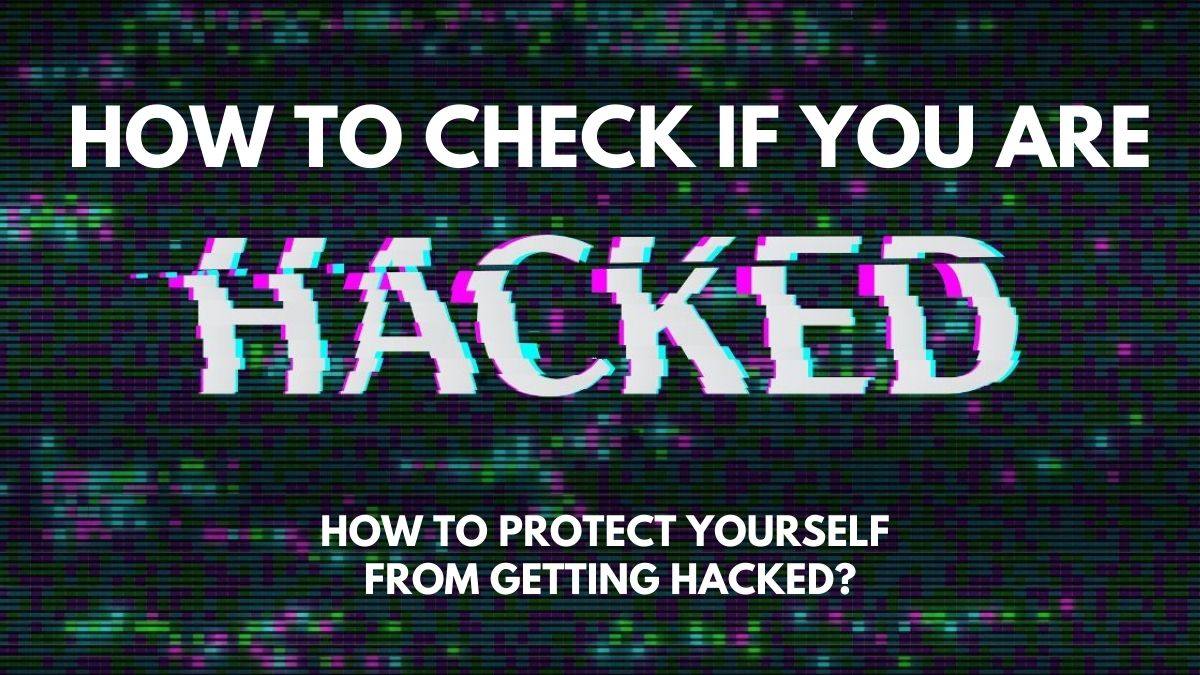How to check if You are Hacked? How to Protect Yourself from getting hacked?

With the advancements in technology arrived the advancements in crimes, a new kind of threat appeared in our lives, What if my system gets hacked?
Nowadays, we save most of our important and sensitive data even our wealth in our devices which makes our PC or mobile our biggest asset. To protect ourselves, we got for antimalware scanners but they are also horrifically inaccurate. To combat dangerous malwares, antimalware programs monitor program behaviors in order to catch previously unrecognized malware.
Other programs use virtualized environments, system monitoring, network traffic detection and all of the above to be more accurate. But still, they face serious failures for which the users should be aware of. But how would you know you are hacked? Let me tell you the basic checks by which you may know you are hacked.
-
Frequent Pop-ups
If you gets frequent, random pop-ups from websites that don’t normally generate them. They never fail to annoy users and they should be neglected as it may indicate that your device is compromised. Further, if you get x-rated pop-ups, it may also indicate that the device is hacked.
-
Too much data usage and battery usage
If you data bill is higher than usual or it gets exhausted even if you don’t use it much, it can be due to the virus using data. If your battery gets exhausted too soon, it is an alert sign as something malicious is making its place in your device.
-
Unrecognized social media activity
If your friends receive invitations that you didn’t sent, don’t think that your memory is weak. If you spot changes in your email activity that you didn’t made, Be Alert! You have to be aware, maybe a hacker has gained access to your device who may initiate some dangerous activities.
-
Unrecognised apps or software install
If you find some unknown and unwanted apps or softwares on your device, it may be an effect of a hacker.
- Your money is missing or data leaked
Your bank accounts are linked with phone or apps or softwares, if you notice your deposits are degrading without you initiating any transactions or you feel like your login credentials to some kind of official website have been leaked, then it’s almost confirm that you are hacked.
How to protect yourself from getting hacked?
There is a popular quote that says Prevention is better than cure, maybe your device has an expensive anti-malware program which will protect you in most cases but still, for exceptional cases, you must be aware of changes in devices. You must keep an eye if some unwanted and unrecognized changes are made in apps, financial transactions, browsers or others and do not neglect even the slightest changes because it may also lead to big malicious effects later.
-
Use strong passwords
It’s 2021, we depend on technology. Data saved on phone or PC, password protected. So your passwords should be strong and unique. What this really means is they should be long, include a mixture of different character types, and not be used across multiple websites.
-
Spot a infected message
When a new email or text message arrives and that’s a big strange or maybe you are noticing too much strange pop-ups or messages, do not tap on any link in them. They can be severely infected.
-
Update everything
You must time to time update every apps, softwares and even the operating system which will make them strong and less vulnerable. Other important task is to encrypt. Using encrypted services means that what you’re sending is better protected against surveillance and won’t be accessible even if your device is lost, it may also protect you from various websites using your data.
You have to pay for what you get. If your devices provide you with so many features and facilities you should also provide it with some facilities. Use an anti-malware program but don’t stop her, always stay aware of any unknown changes in your device.


